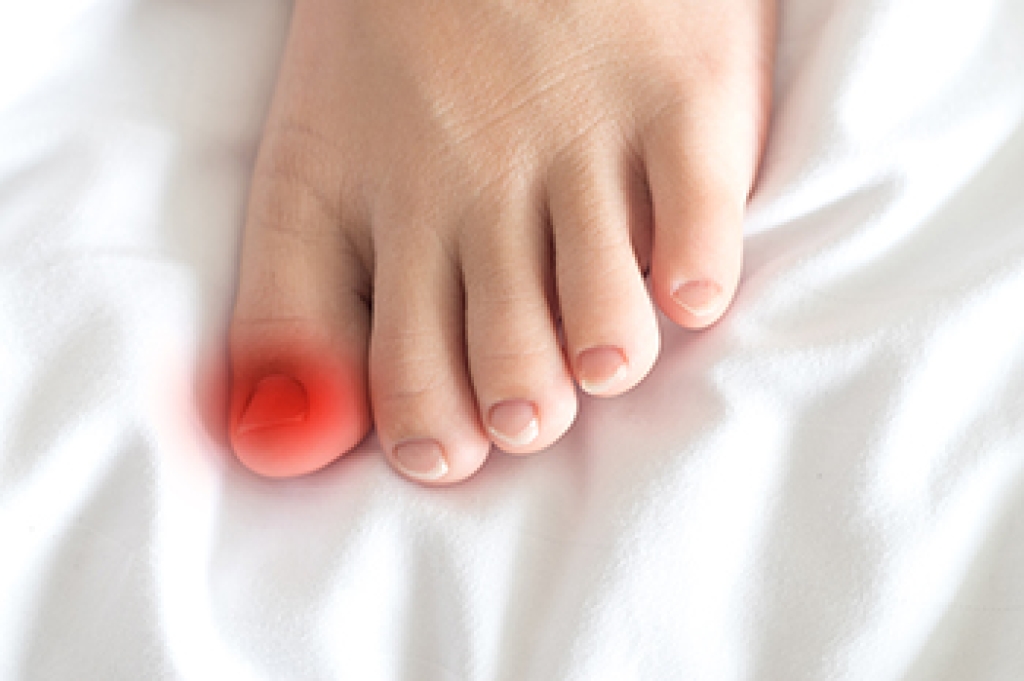
Ingrown toenails in the elderly can result from various risk factors. These include both anatomical and behavioral factors. Improperly trimming or tearing nails, as well as wearing tight or ill-fitting footwear, can contribute to the development of ingrown toenails. The use of shoes, especially constricting ones, is associated with an increased risk. Systemic diseases, such as diabetes and obesity, may predispose individuals to lower extremity edema, making them more susceptible to ingrown toenails. Certain medications like retinoids, oral antifungals, and cyclosporine have also been linked to the condition. Hyperhidrosis, or excessive sweating of the feet, can soften the nail and skin, making it easier for the nail to pierce the surrounding skin. Poor foot hygiene can also exacerbate this issue. Repetitive trauma from activities like running or sports can be inciting factors for ingrown toenails. Some individuals may have a genetic predisposition or a family history of ingrown toenails. Additionally, congenital malalignment of the great toenails is associated with a higher risk of developing ingrown toenails. If you are a senior and suffer from discomfort of ingrown toenails, it is suggested that you schedule regular appointments with a podiatrist to obtain proper care and learn more about preventative measures.
Ingrown toenails can become painful if they are not treated properly. For more information about ingrown toenails, contact one of our podiatrists of Nashville Family Foot Care. Our practitioners can provide the care you need to keep you pain-free and on your feet.
Ingrown Toenails
Ingrown toenails occur when a toenail grows sideways into the bed of the nail, causing pain, swelling, and possibly infection.
Causes
- Bacterial infections
- Improper nail cutting such as cutting it too short or not straight across
- Trauma to the toe, such as stubbing, which causes the nail to grow back irregularly
- Ill-fitting shoes that bunch the toes too close together
- Genetic predisposition
Prevention
Because ingrown toenails are not something found outside of shoe-wearing cultures, going barefoot as often as possible will decrease the likeliness of developing ingrown toenails. Wearing proper fitting shoes and using proper cutting techniques will also help decrease your risk of developing ingrown toenails.
Treatment
Ingrown toenails are a very treatable foot condition. In minor cases, soaking the affected area in salt or antibacterial soaps will not only help with the ingrown nail itself, but also help prevent any infections from occurring. In more severe cases, surgery is an option. In either case, speaking to your podiatrist about this condition will help you get a better understanding of specific treatment options that are right for you.
If you have any questions, please feel free to contact our office located in Nashville, TN . We offer the newest diagnostic and treatment technologies for all your foot care needs.
